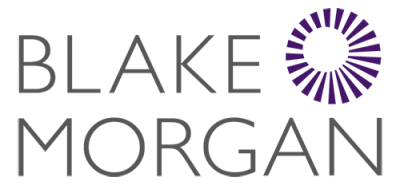Non-disclosure agreements (NDAs) stand at a critical crossroads. Recent, imminent and future legal reforms are poised to fundamentally alter their scope and enforceability in the context of discrimination and harassment.
NDAs have historically functioned as integral instruments for maintaining corporate confidentiality and protecting intellectual property and trade secrets. They are routinely used throughout the entire employment lifecycle — from the point of hiring, through ongoing employment, and extending to an employee’s exit. Nonetheless, substantial legislative reforms are set to significantly limit their scope.
How are legislative changes reshaping NDAs in the UK?
The UK Government is set to ban the use of controversial NDAs where workers have complained about workplace harassment, as part of the Employment Rights Bill. If enacted, these new rules will render confidentiality clauses in settlement agreements (or other agreements) void, to the extent that they attempt to prevent individuals from discussing allegations of harassment or discrimination. There will be limited circumstances where NDAs can still be used in relation to harassment and discrimination complaints, known as “excepted agreements”. Forthcoming regulations are expected to define an “excepted agreement” narrowly, allowing such NDAs only under specific conditions — most notably, when a worker actively requests one.
With the Higher Education (Freedom of Speech) Act 2023 taking effect on 1 August 2025, higher education institutions in England are already prevented from using NDAs to silence students, staff, or speakers who report harassment, abuse, or bullying.
How does the Victims and Prisoners Act 2024 further impact the enforceability of NDAs in the UK?
Under Section 17 of the Victims and Prisoners Act 2024 (“the Act”), any NDAs entered into on or after 1 October 2025 will be unenforceable against individuals who are, or who reasonably believe themselves to be, victims of crime — specifically when they disclose information about relevant conduct to certain parties and for clearly defined purposes.
The Act explicitly protects disclosures made by victims to:
- Law enforcement agencies and investigative authorities
- Qualified legal professionals
- Regulated professionals, including members of the healthcare sector
- Registered victim support organisations
- Regulatory or supervisory bodies
- Authorised representatives
- Immediate family members, specifically being a victim’s child, parent, or partner
These communications are deemed “Permitted Disclosures” under the legislation.
Who is considered a victim under the Act?
The Act adopts an inclusive definition of "victim." Under Section 1, a victim is anyone who has suffered harm as a direct result of criminal conduct in England and Wales, or who reasonably believes they are a victim. Notably, this definition extends to individuals who have witnessed criminal conduct and experienced harm as a consequence.
“Harm” is defined broadly to include physical, mental, or emotional suffering, as well as economic loss. Importantly, there is no requirement for the offence to have been officially reported, nor must there be a charge or conviction for someone to be recognised as a victim under the Act.
How should organisations adapt their practices?
Contract templates — especially NDAs, but also contracts of employment and settlement agreements — require thorough review to ensure they align with the latest legal standards. Best practice dictates that NDAs should explicitly delineate the circumstances in which disclosures are permitted, ensuring clarity and eliminating potential ambiguities regarding parties’ rights and obligations. By doing so, businesses can safeguard transparency and compliance in a rapidly evolving environment.
Conclusion
The introduction of these legislative reforms is another step toward prioritising individual rights over the broad use of confidentiality clauses. For employers, this evolution necessitates a proactive approach: reviewing and updating workplace policies, contract templates, and staff training to ensure alignment with new transparency-focused standards. While NDAs continue to serve a valid purpose in protecting legitimate business interests, their application in cases of harassment or discrimination is now subject to stricter scrutiny. This will be even more the case when the NDA provisions in the Employment Rights Bill come into force, although there is no implementation date for this at the moment.









